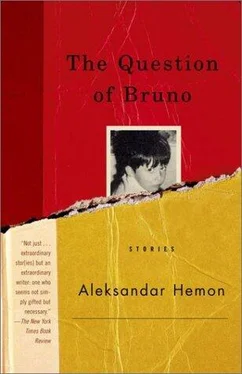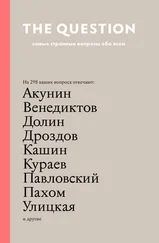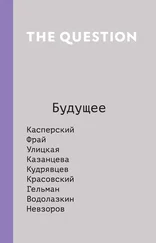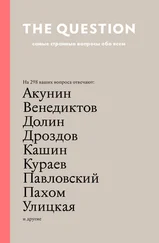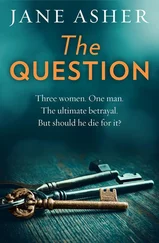Sometimes, Pronek would sit in a comfortable armchair, and try to imagine his life in this condo: he would walk in through that door, still checking the mail — stacks of letters from his friends, from all parts of the world — take off his shoes and wiggle his toes. He would go to that tall, handsome bottle of scotch and pour himself a generous drink, sip, and let the warmth slowly coat his bowels; he would check the messages (“Hi! Ahmm … this is Grace, returning your call… Ahm … I’ll be real busy next week, but I think I can squeeze you in next Friday … Ummm … I kinda like Italian food, I guess …”). He would go, still sipping his drink, to the closet, slide the mirror, and hang up the navy-blue jacket, shirts, and suits hiding coyly behind each other’s backs, still happy to see him. And in the morning he would turn on the radio (“Inbound Dan Ryan pretty packed … Outbound Kennedy moving smoothly …”). He would fry a couple of eggs in the Teflon pan, while brushing his teeth, spitting the foam into his kitchen sink. He would have parties on weekends, invite his friends, and then, afterward, after the last drunken guest had left, he would make love to Grace — a voluptuous blonde from White Pigeon, Michigan — on the sofa (because they were too horny to make it to the bedroom), watched by a chorus of martini glasses, some of them violated by a cigarette butt. Sometimes, when truly blue, he would dim the lights, open a bottle of Chardonnay, play some blues (I’d Rather Go Blind Than See You Walk Away from Me) , and get slowly drunk, until he passed out.
Having cleaned the condo, he would then go back to his apartment — a hollow, furnitureless studio, looking at the El tracks, which he had recently rented for $285—lie on the floor mattress, watch the ceiling fan revolving above like a gigantic demented dragonfly. Pronek understood that to maintain the sameness of every day the fan had to keep revolving; he had to leave for work at the same time, and come back with the same train; his lunch always had to be the same baloney with Wonder bread. As long as every day was as any other day, his parents would be alive, still waiting to get on the convoy.
As we’re charting the foreign territory of Pronek’s mind — expanding westward, as it were — we must not omit the marshes of involuntary memories he mired in for a while.
The first one overwhelmed him abruptly, as he was gorging himself on farmer cheese mixed with sour cream, with green onions and rye bread. As soon as the medley of tastes — the cool milkiness of farmer cheese, the pungent, sneezeful greenness of green onions, the sweetness of bread crumbs scratching his tongue — reached the palate, a shudder ran through him. A billow of warm sorrow invaded his senses, a feeling isolated, detached, with no suggestion of its origin. He took the second morsel, chewed it sluggishly and — as the mulch slid down his throat — a memory raised slowly, like leavening dough: a summer afternoon, late July, in Sarajevo, on their balcony, looking westward at the sun setting behind the squareness of the building with big, red letters on it reading: “Long live Tito”; he was reading a comic book (“Tarzan vs. Interpol”), dropping moist chunks on the pages (Tarzan fighting a villain on the Eiffel Tower); his father reading obituaries in the back of the paper, sighing pensively, paper rustling; his mother watering flowers, their turquoise trumpets twinkling around the edges in the counterlight, niggled by bees; a bunch of his loud friends (Vampire, Cober, Deba, Armin) shouting from the park under the balcony: “Pronek, come down, bring the ball out. Let’s play cowboys and Indians!”; the sun crawling behind the “Long live Tito” building, and all the shades on the balcony disappearing from the concrete exuding warmth, until the night blanket covered everything.
Thus began a period of some twelve months in which Pronek was perpetually dazed, for the involuntary-memory sensations were no longer routine perceptions, but rather an unpleasant burden, which forced him to wallow dolefully in his previous life.
He would enter an apartment to be cleaned, and walk into a cloud of fragrance (Magie Noir) left by an absent woman, and he would instantly recall burying his face in Zu’s hair, the tickling silkiness on his cheeks; he would clean the bathtub and the chlorine stench of the cleaning potion would bring back cleaning squat toilets in the army, his hands burning afterward, the steel ball of nostalgia grinding his bowels; the smell of burned grease in the kitchen, as he was scrubbing the stove, followed him through Bascarsija, where kebab shops spewed barbecue smoke, and the uneven stone pavement under his feet made him wobble; the dust aroused by the vacuum reminded him of Saturday mornings, the cleaning time in their home, when his mother would make him crawl under the bed to reach the clusters of dust backed up against the wall — he would lie there, enjoying seclusion, his cheek stuck to the cold parquet, until his mother’s stodgy feet appeared by the bed; a sun-smudge quavering on the wall above the piano was the same one as the one on the inside of the tent wall, as he drowsed tranquilized by the heat, the tent full of the cheap coconut smell of sunscreen; pencil shavings in the basket by the desk had the same pungent, wooden smell as the color pencils he shared with Mirza, his best friend in elementary school, bringing back the September scent of waxed floors and wet chalk boards and clean children’s clothes; an array of books on the desk — three of them spread like pinned butterflies, pressing against the desk surface, their spines sticking out, as if they were doing push-ups — was on his desk once upon a time.
His head became bigger and heavier; his spine was slowly curling into a question mark; and he walked — when he walked at all — bent forward, his gaze fastened to his toes, like a dummy slowly deflating.
A Rose for Pronek
But while we were up to our waists in Pronek’s stream of consciousness, dear reader, fly-fishing for the psyche, the world did not stop revolving, the clock did not stop ticking. For three years have inconspicuously passed, and we’re sprouting back into the spring of 1996. In the meantime, Pronek’s parents never got on the convoy; Pronek’s father was wounded by a sniper; the TV screen became saturated, oversaturated, under-saturated, and then the exactly-opposite-of-saturated with images from Bosnia: several more broadcast massacres in the city; the mauling and massacre of Srebrenica; some more Western muscle flashing; friends shot by snipers or killed by shrapnel; rape camps; starvation stories; burning villages; Karadzic, Mladic, Milosevic shaking hands with someone; the end of the siege of Sarajevo and the war; talking to his parents once a month or so. Pronek went through all this in an aching daze, never — we’re proud to say — underperforming at his work. In fact, he became a single-condo specialist, developing a healthy herd of steady customers, who never saw him but regularly left tips for him under the fruit bowl, or on the coffee table. Now he was able to save up some money and rent a one-bedroom apartment in West Rogers Park. The apartment had slanted floors; door posts askew; hissing, hysterical silver radiators; an ancient, pink, four-legged bathtub; and an army of medium-sized cockroaches, clearly comfortable, if not excited, to have him in the apartment. We’re able to submit a telling image from the first night he spent alone in the apartment: Pronek on the floor, sandwiched between two thin, gentle blankets, the floor pleasurably hard; he’s looking across the room, the freshly polished floor glistening, like the lake on a moonlit bonanza night; in the opposite corners, miles away, in the dimness of otherness, his two suitcases, like Don Quixote and Sancho Panza — the thin, tall suitcase full of books and papers, and the fat one bulging with dirty clothes and a couple of soggy towels.
Читать дальше
